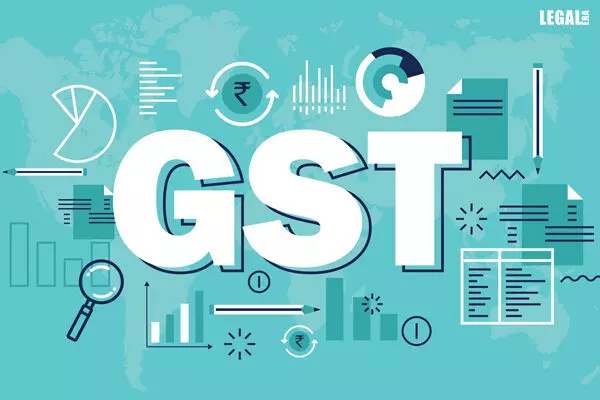- Home
- News
- Articles+
- Aerospace
- Agriculture
- Alternate Dispute Resolution
- Banking and Finance
- Bankruptcy
- Book Review
- Bribery & Corruption
- Commercial Litigation
- Competition Law
- Conference Reports
- Consumer Products
- Contract
- Corporate Governance
- Corporate Law
- Covid-19
- Cryptocurrency
- Cybersecurity
- Data Protection
- Defence
- Digital Economy
- E-commerce
- Employment Law
- Energy and Natural Resources
- Entertainment and Sports Law
- Environmental Law
- FDI
- Food and Beverage
- Health Care
- IBC Diaries
- Insurance Law
- Intellectual Property
- International Law
- Know the Law
- Labour Laws
- Litigation
- Litigation Funding
- Manufacturing
- Mergers & Acquisitions
- NFTs
- Privacy
- Private Equity
- Project Finance
- Real Estate
- Risk and Compliance
- Technology Media and Telecom
- Tributes
- Zoom In
- Take On Board
- In Focus
- Law & Policy and Regulation
- IP & Tech Era
- Viewpoint
- Arbitration & Mediation
- Tax
- Student Corner
- AI
- ESG
- Gaming
- Inclusion & Diversity
- Law Firms
- In-House
- Rankings
- E-Magazine
- Legal Era TV
- Events
- News
- Articles
- Aerospace
- Agriculture
- Alternate Dispute Resolution
- Banking and Finance
- Bankruptcy
- Book Review
- Bribery & Corruption
- Commercial Litigation
- Competition Law
- Conference Reports
- Consumer Products
- Contract
- Corporate Governance
- Corporate Law
- Covid-19
- Cryptocurrency
- Cybersecurity
- Data Protection
- Defence
- Digital Economy
- E-commerce
- Employment Law
- Energy and Natural Resources
- Entertainment and Sports Law
- Environmental Law
- FDI
- Food and Beverage
- Health Care
- IBC Diaries
- Insurance Law
- Intellectual Property
- International Law
- Know the Law
- Labour Laws
- Litigation
- Litigation Funding
- Manufacturing
- Mergers & Acquisitions
- NFTs
- Privacy
- Private Equity
- Project Finance
- Real Estate
- Risk and Compliance
- Technology Media and Telecom
- Tributes
- Zoom In
- Take On Board
- In Focus
- Law & Policy and Regulation
- IP & Tech Era
- Viewpoint
- Arbitration & Mediation
- Tax
- Student Corner
- AI
- ESG
- Gaming
- Inclusion & Diversity
- Law Firms
- In-House
- Rankings
- E-Magazine
- Legal Era TV
- Events
Allahabad High Court: GST and Central Excise Superintendent Do Not Have Jurisdiction to Pass Order Exceeding Rs.10 lakh

Allahabad High Court: GST and Central Excise Superintendent Do Not Have Jurisdiction to Pass Order Exceeding Rs.10 lakh
Directs the concerned authorities to proceed afresh in accordance with the law
The Allahabad High Court has quashed the order of the Superintendent of Central Excise and the Goods and Services Tax (GST) department for lack of jurisdiction.
The bench comprising Justice Alok Mathur observed that according to the 09 February 2018 Circular issued by the Ministry of Finance, and Department of Revenue, Government of India, the power of the Superintendent of the Central Goods and Service Tax (CGST) and Central Excise was limited to the matter not exceeding Rs.10 lakh. Whereas, in the present case, the amount was more. Therefore, the order passed by it was without jurisdiction.
The petitioner had challenged the order passed by the Superintendent of CGST and Central Excise under Section 73 of the CGST Act, 2017. The petitioner contended that the order did not have jurisdiction keeping the 2018 circular in mind.
He stated that the respondent department issued the order assigning jurisdiction to various authorities related to the maximum amount of central tax not paid, short paid, erroneously refunded, or input tax credit (ITC) of central tax wrongly availed or utilized.
On the other hand, the department submitted that the order may not be proper for not being passed by the relevant officer as per Circular No.31/05/2018. The monetary limit of the ITC wrongly availed or utilized by the central tax and the state tax was Rs.10 lakh each. It totaled to Rs.20 lakh for the issuance of show-cause notices and the passing of orders under Sections 73 and 74 of the CGST Act.
However, the court set aside the order by stating that it was without jurisdiction. It granted the respondent department the liberty to proceed afresh in accordance with the law.


